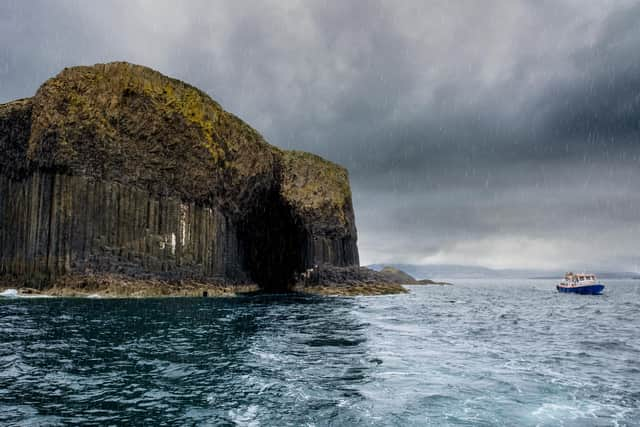Staffa island: Looking after Scotland’s natural assets is money well spent – whatever the cost
But the uninhabited island of Staffa in the Inner Hebrides is certainly a strong contender.
Defined by towering geometric basalt columns created from volcanic lava flows some 60 million years ago and home to the legendary Fingal’s Cave, it has been a magnet for tourists since the 1700s.
Advertisement
Hide AdAdvertisement
Hide AdFamous visitors include Queen Victoria as well as the poets William Wordsworth, John Keats and Alfred, Lord Tennyson, along with novelists Jules Verne and Sir Walter Scott.
The cave’s otherworldly acoustics are said to have inspired German composer Felix Mendelssohn to create his Hebrides Overture and influenced rock band Pink Floyd.
The rocky outcrop, which lies seven miles west of the Isle of Mull, is also home to important seabird colonies, including puffins, fulmars, shags and black guillemots, and is a designated nature reserve.
Today up to 100,000 people make the boat journey to explore the landmark each year.


Unfortunately, as we see elsewhere, this increasing popularity has its downsides, with high footfall taking chunks out of the landscape.
So it’s great news the National Trust for Scotland (NTS), which was gifted the tiny island in 1986, is set to carry out £1.6 million of works to repair damage, build new paths and improve access for visitors.
It has received a grant from the Rural Tourism Infrastructure Fund, administered by Argyll and Bute Council, to help pay for the project.
Staffa’s jetty, steps up to the top of the island and footpaths are to be upgraded as part of what the charity says is a “very challenging and hugely costly” project, involving materials being helicoptered in.
Advertisement
Hide AdAdvertisement
Hide AdConstruction is due to start in the middle of August, to avoid the seabird breeding season, with completion expected early next year – ready for summer visitors.
The NTS has warned sightseers may not be able to land on Staffa at some times while work is going on, but that’s a small inconvenience for this crucial project.
Comments
Want to join the conversation? Please or to comment on this article.
